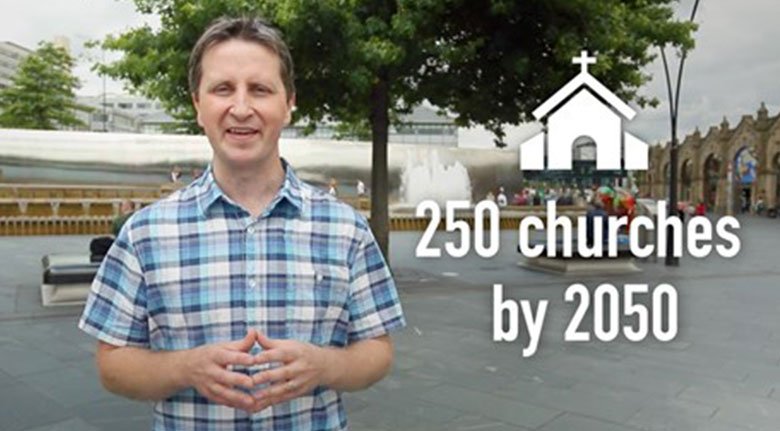AMiE, the UK mission society established by GAFCON, begins ambitious church planting program

THE Church of England should not have a monopoly on Anglicanism in England, the priest set to plant a new church in Scarborough, outside diocesan structures (News, 9 September; Letters, 16 September), says.
“In the business world, monopolies are not encouraged; so I do not see why there should be one Anglican service provider in England,” the Revd Lee McMunn said on Wednesday. “Surely we can allow people the option to choose, whether that is future ministers or future members of congregations.”
His Anglican Mission in England (AMiE) church in Scarborough will be the first of hundreds, if the organisation’s church-planting plans are fulfilled. This month, AMiE announced plans to plant 25 churches by 2025, and 250 by 2050. It is seeking to draw up a map of “promising and needy places to plant new gospel churches”, and to recruit people to start AMiE churches and serve as “assistant ministers”. It is also hoping that Anglican churches will form partnerships with AMiE churches, providing money and “mutual training”.
Mr McMunn, who has served as Assistant Curate to the Vicar of St John’s, Newland, in Hull, the Revd Melvin Tinker, since being ordained in 2005, said that he had had a “really happy ministry in a great Church of England parish”. The two main reasons for planting outside the Church were timescale (he fears that “Christians have lost a sense of urgency of spreading the gospel”); and his desire to “minister across multiple parishes”, which was “really difficult in the Church of England . . . If someone said ‘Where do you want to minister?’ I would say ‘the whole place’.”
AMiE wanted to “reach areas of the country where people have to drive many miles to find a healthy Anglican church”, he said. He defined a “healthy” church as one where the Bible was taught, and where there was a “great desire to be shaped by what the Bible says”. He rejected reports that AMiE’s plans amounted to a “mass exodus”, and emphasised that he supported “two parallel Anglican routes”, whereby some plants would happen within diocesan structures, and that 250 by 2050 amounted to a “slow trickle”. Assistant ministers, currently being recruited, would be provided with a “robust and rigorous theological education”, and would be expected to go on to establish new churches.
Although he refused to name dioceses in which obstacles to church-planting had been identified, he said that the picture was “rather diverse across the country”. National enthusiasm for church-planting did not always exist at a local level, where some senior staff were “overwhelmed by declining congregations and decreasing cash”. Sometimes there was “no desire to start conservative Evangelical churches”.
Asked about existing church-planting plans in the Church of England — the diocese of Guildford this week announced plans to establish 100 new worshipping communities over the next ten years — Mr McMunn said that he was “personally delighted when more churches are started that seek to spread the Good News. . . But there is such a need in this country that the nation cannot be reached simply within the Church of England alone.”
AMiE church-planters “would do all they can to get to know local Christian leaders”, he said. He had met “a variety of people” in Scarborough, including Christians who were “concerned about what they think we might be doing”.
He continued: “The key challenge for local churches is not to see new churches as a threat, but as more gospel workers to help with the Great Commission of spreading the good news of Jesus. If I was part of an army that was trying to do a great task and feeling the task was overwhelming . . . and we got extra reinforcements to come and help, that would be great. There is so much to do.”
Asked whether he could understand why existing churches might feel offended by the suggestion that the gospel was not being taught, he denied that the message was that “Nothing good is happening and we are here to save the day.”
“Towns like Scarborough and other part of North Yorkshire need more churches that are committed to reaching out with the word of God,” he said.
Visit the new church in Scarborough’s website.
